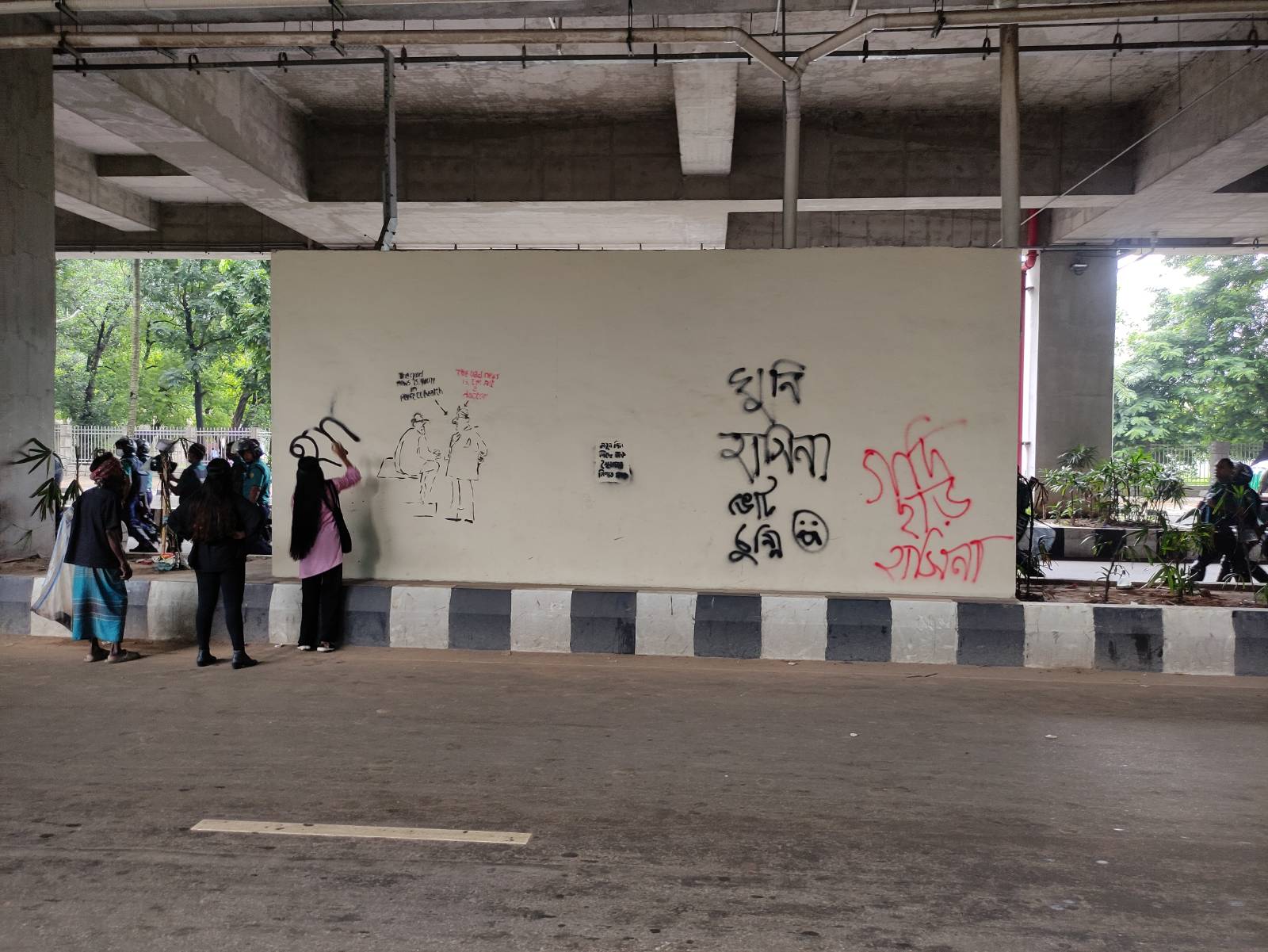Bangladesh’s protests refuse to subside as police open fire
Following a week-long break, protesters continue to show up in Bangladesh, posing an ever greater challenge to the rule of Sheikh Hasina

At least two people, including a policeman, were killed and hundreds injured in Bangladesh on August 3rd, 2024, as security forces opened fire during sustained civil unrest that has menaced the government of Sheikh Hasina.
The fresh violence resumed after a week-long hiatus following the most intense agitation in Bangladesh’s history, which resulted in more than 200 deaths in the span of days. On Friday, clashes were reported in Dhaka, Habiganj, Gazipur, Sylhet, Khulna, and Lakshmipur, where police and ruling party cadres were seen attacking protesters with firearms and machetes.
The renewed and defiant protests in Bangladesh, which first began in opposition to quotas in public jobs and have now mushroomed into widespread civil unrest, pose an existential threat to Prime Minister Sheikh Hasina’s otherwise tight grip on power.
As tensions intensified, with people from many walks of life joining the protests, Bangladeshi authorities responded by shutting down or downgrading mobile internet in certain hotspots. The internet had been repeatedly blocked during the earlier phase of the crackdown. Facebook, the social media site popular in Bangladesh, was once again reported shut on mobile internet before being restored.
Student leaders have so far fallen short of demanding an outright resignation from Hasina but have asked for the resignation of several top ministers accused of inciting attacks on protesters at the onset, and the prosecution of officials accused of killing protesters. The government, too, has avoided directly attacking the students and blamed the opposition for the violence, but it has continued detaining students from around the country.
On Friday, the student leaders vowed to continue as they announced a nationwide “non-cooperation” movement, a type of civil disobedience that asks citizens to suspend transactions with the government.
International actors have also dialled up pressure on Prime Minister Sheikh Hasina. On Friday, a group of 22 influential American lawmakers, led by Senator Edward Markey, called for “a representative democratic government” in Bangladesh in a letter addressed to Secretary of State Antony Blinken. The European Union had earlier postponed talks on a new pact with Bangladesh, citing the government’s crackdown on protesters.
Prime Minister Hasina’s past three elections have been widely discredited due to allegations of voter fraud and boycotts by opposition parties. She has faced significant criticism for becoming increasingly authoritarian during her more than 15 years in power, frequently resorting to extrajudicial killings and enforced disappearances, often targeting opposition members.
During Friday’s protests, a garment worker died in northeastern Habiganj when members of the Chhatra League, affiliated with the ruling party, clashed with protesters. Mostak Mia, 24, died from bullet injuries, according to Prothom Alo. Meanwhile, in Khulna, a police constable was allegedly beaten to death by an angry crowd protesting against a police station after police attempted to chase them in an armoured vehicle. Around 50 people were injured, including 17 who were hospitalised.
Netra News obtained firsthand videos from four eyewitnesses that captured police firing at protesters in Dhaka’s upscale Uttara neighbourhood. Eyewitnesses reported members of the ruling Awami League party and its affiliates shooting at students gathered in Sector 11 in Uttara, despite the possession of firearms being illegal in Bangladesh. Some ruling party activists also carried machetes, rods, and sticks.
In Lakshmipur, Awami League cadres were seen parading the streets with long knives, machetes, and what appeared to be firearms. The Daily Prothom Alo newspaper identified one of the attackers as Mohammad Russell, the chauffeur of AKM Salauddin Tipu, a ruling party leader and chairman of the local council.
Near the campus of Shahjalal University of Science and Technology in Sylhet, a special police unit trained by the United States was seen shooting at students, according to firsthand footage obtained and verified by Netra News. Clashes broke out in other parts of the city as well, with a 12-year-old child among at least 50 others injured in the violence, according to demonstrators and police sources.
The United Nations children’s agency, UNICEF, reported on Friday that as many as 32 children were confirmed killed during a brutal crackdown by security forces to quell student protests that began on July 16.
“UNICEF has now confirmed that at least 32 children were killed during July’s protests, with many more injured and detained. This is a terrible loss,” said Sanjay Wijesekera, the organisation’s South Asia regional director, in a statement.
The statement added that many more children were being detained by authorities and called for an end to child detention.
Amnesty International in a statement on Friday condemned what it called “arbitrary detention” of more than 10,000 people arrested by authorities.